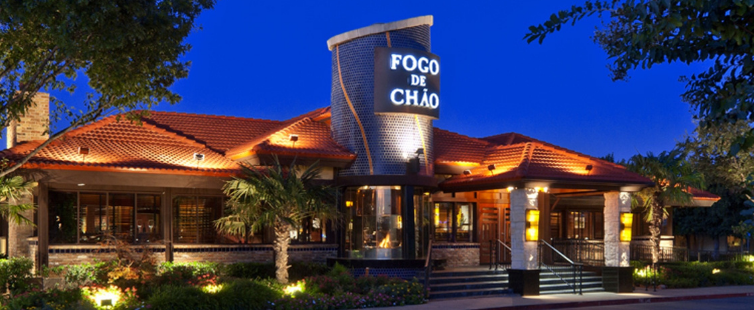For Restaurant Brands, Size Isn’t Everything

Often overshadowed by the ubiquitous national restaurant brands, smaller chains are increasingly looking to brand licensing to create an extra income stream in the face of the business interruptions created by the pandemic.
Revenue quest
“They are looking to get revenue any way they can, and whether it’s to-go, catering and increasingly licensing, they are all trying to get the brand out there in a bigger way,” says Janna Markle, VP Brand Licensing and Strategic Partnerships at Brand Central.
To be sure, food licensing has long been synonymous with national retail brands such as TGI Friday’s, Sonic, PF Chang’s, Nathan’s Famous, Checkers Drive-In, Rally’s and even the regional chain Tony Roma’s Steakhouse in categories such as sauces, appetizers and fries. The licensing business can be complicated for eateries, particularly those with franchisees who worry that if licensed food is good, it will pull traffic from their restaurants, and if it’s bad, it will damage the brand.
More than local sales
The smaller chains are looking to licensing for a variety of reasons. Of course, there’s the direct revenue from the licensing agreement in a home region in which the brand has a solid image, i.e. spice rubs from strong barbecue chain. And it’s a way of creating additional touchpoints to foster brand affinity.
“We view product licensing as an extension of our core business,” said Earl Enterprises Chairman Robert Earl. “Our goal is to increase the number of ways customers interact with our brands, both inside and outside of our restaurants.”
In the age of ecommerce, those same licensed products can be marketed to homesick ex-pats in the same way that Fanatics serves them for sports. It can also be a way for the restaurant to build its brand (or discover hidden affinity) in new locales. And this comes at a time when grocery chains have developed more of an appetite for localized brands, sometimes as DTRs.
IMG recently signed to represent Earl Enterprises, whose holdings include Planet Hollywood (7 units), Bertucci’s, 53 units in the Northeast U.S), Bravo! Italian Kitchen (26) and Brio Italian Grille (31), largely in the Midwest; Buca di Beppo (77 with heavy concentration in California) and Earl of Sandwich (36). It has discussed potential agreements with regional grocery powerhouses such as Texas-based HEB and Florida-based Publix, says Ricky Yoselevitz, VP Partnerships and Business Development at IMG.
“Regional brands in some sense provide a level of authenticity, authority and credibility, along with a particular taste profile at a time when the country is becoming more glocal,” says Yoselevitz, using shorthand for products that can be developed for global distribution, but adjusted for local markets. “And grocery chains are increasingly willing to take on something they believe is representative of their region and speaks to the regionality of their consumers.”
One goal for licensors is to attract licensees who see value in local and regional deals, rather than only considering national ones. “Some licensees are looking for a regional play because they know it will resonate rather than taking a risk on something that might not go well nationally,” says Markle. “The quality and manufacturing gap between the smaller companies and the bigger ones has narrowed and they are better positioned for a regional execution than a national one.”
Among recent developments:
- Brand Central signed to bring the 55-restaurant Brazilian streak house chain Fogo de Chao into licensing for the first time. The Fogo program will initially target meats, appetizers, breads and caipirinha, its signature drink and Brazil’s national cocktail, with a goal of having products available by Q3 2021, says Markle. Fogo has 42 locations across the U.S., and another 12 in Brazil, Mexico and UAE.
- Earl Enterprises, much like companies in other businesses, has acquired some of its restaurant brands through bankruptcy. It bought Bertucci’s out of bankruptcy in 2018, and added Bravo and Brio shortly after its parent, FoodFirst Global Restaurants, sought bankruptcy protection last April. Of Earl’s brands, only Planet Hollywood has a history in licensing, largely in apparel and gifting. But there are plans for experiential formats, says Sherikay Chafee, VP of Licensing at IMG. Buca, Bertucci’s and Earl of Sandwich will target food and beverage with plans to have first products available by late Q4 2021 or early 2022.
- Dickey’s Barbecue Pit licensee Spice Chain will deliver nine SKUs of rubs, powders and steak seasoning in Q1. Dickey, represented by Global Icons, operates 457 restaurants, 141 of which are in Texas.




